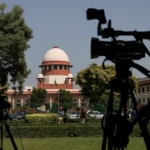First Quantum’s Cobre Panama mine has taken steps to suspend arbitration proceedings against Panama following the government’s condition that negotiations could only move forward if the case was paused.
This development aims to find a resolution benefiting workers, communities, suppliers, and all Panamanians, signaling progress after months of disruption.
The mine has been inactive since November 2023 due to a Supreme Court ruling that declared its contract unconstitutional, with environmental concerns and export restrictions compounding the situation.
Recent moves by the Panamanian government, including approving the export of stranded copper concentrate and restarting a critical power plant, indicate a shift toward resolving the conflict surrounding the mine.
Shares of First Quantum increased by 1% after news of the export approval, reflecting investor optimism amid ongoing legal and operational challenges.
Cobre Panama remains a significant global copper source, and its future will be closely watched as discussions with the government continue.
Cobre Panama is a major mining operation with significant economic and geopolitical importance.
It has faced recent legal and operational challenges but remains a key asset in copper production.
Cobre Panama mine is located 120 kilometers west of Panama City in the Colon Province.
This location places it strategically near Central America’s key maritime routes, enhancing its export potential.
The mine is one of the largest copper deposits in the Americas. It plays a vital role in Panama’s economy by providing jobs and infrastructure development.
The operation also affects local communities and ecosystems, making it a focal point for environmental and social discussions.
Cobre Panama began commercial production with substantial investment from First Quantum Minerals.
The mine was inactive from November 2023 after Panama’s Supreme Court ruled its contract unconstitutional.
This halted operations and strained relations between the company and the government.
Environmental concerns and protests under the previous administration contributed to the suspension of activities.
Maintenance issues at the site and accumulated copper concentrate stockpiles became pressing problems during the closure period.
Legal arbitration is ongoing to resolve contractual and operational disputes.








